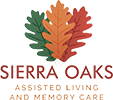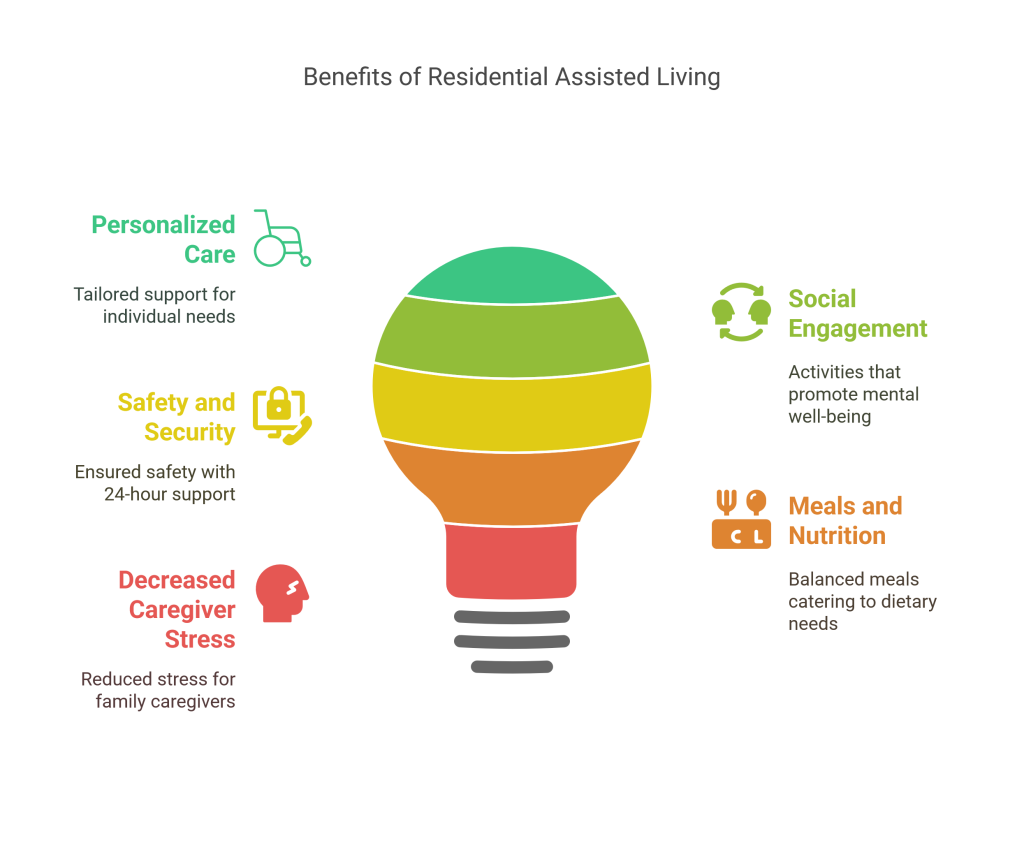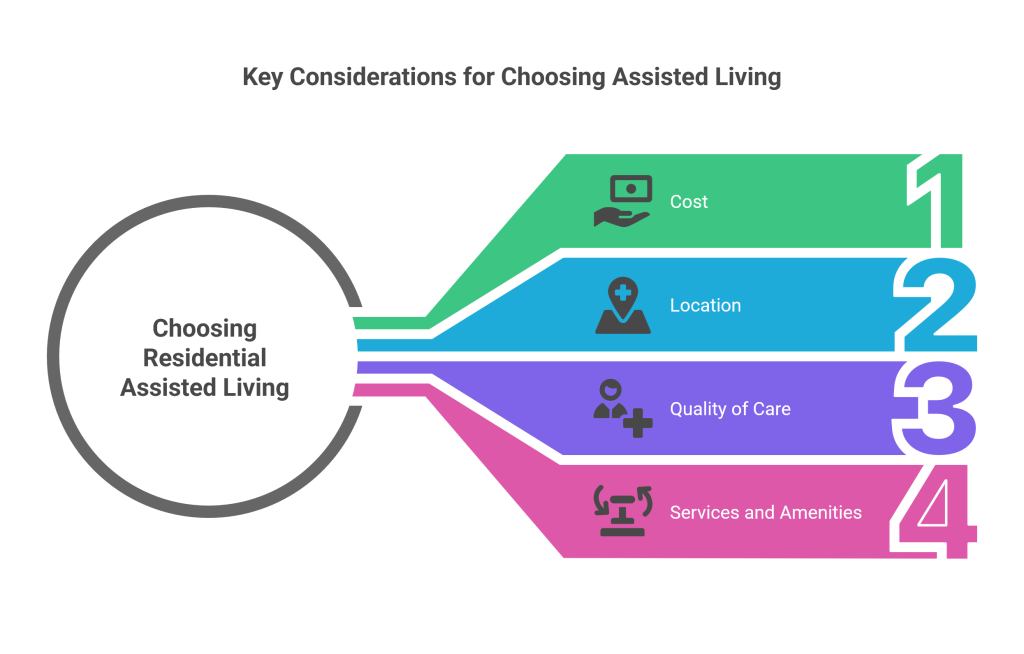Living alone becomes more and more challenging as you grow older. Issues may develop with daily tasks, medication management, and mobility. Such age-related issues impact an individual’s mental health as well as physical health. Family caregivers may attempt to assist their loved ones but end up failing while doing other things.
It is where the residential assisted living steps in and provides the needed solution to the caregivers as well as the elderly. The residential assisted living homes provide elderly persons with a community-based setting in which they get personal care and medical monitoring.
But is the residential assisted living right for your loved ones? Let’s find out all about residential assisted living communities and the advantages they bring to assist caregivers in making the right choice.
What is Residential Assisted Living?
Residential assisted living communities provide senior citizens with personalized care, assistance with daily tasks, and opportunities for social interaction. These communities offer semi-private or private rooms or apartments, along with lounges and activity areas for residents. While receiving care, residents are still able to maintain a high level of independence and are part of a vibrant community.
For Whom is Residential Assisted Living Beneficial?
Seniors who do not require constant medical care but need support with daily living are most suitable for residential assisted living. It provides seniors with a comfortable and secure environment while giving them the care they need to remain independent. Nevertheless, it is best for those who:
- Require assistance with daily activities such as eating, dressing, bathing, and mobility.
- Need assistance with their medication management to ensure they take the correct amount at the appropriate time.
- Experience feelings of loneliness or isolation.
- Have chronic conditions like arthritis or diabetes and require full-time nursing care.
- Need help in emergencies.
Top Benefits of Residential Assisted Living
Assisted living communities at home provide innumerable benefits to the senior citizens. These help the senior citizens with requisite assistance while leaving their independence untouched. Some of the most notable benefits of such facilities are described below:
- Personalized Care: The communities offer elders a personalized approach based on specific needs such as housekeeping, personal care, medication management, and the varying amount of care to meet each resident. Residential assisted living community ensures that each resident receives proper support while promoting independence.
- Social Engagement: The residential assisted living communities provide residents with a chance to participate in everyday social activities such as group exercise, games, outings, and events. These social interactions keep residents fully engaged and in good mental state.
- Safety and Security: The residents have living apartments that are equipped to prioritize safety, including 24-hour staff and emergency systems. It provides caregivers with a sense of relief that their mobility-impaired and cognitively impaired seniors are secure.
- Meals and Nutrition: Residential assisted living centers provide healthy food to seniors that is appropriate for their nutritional needs. It makes the life of old individuals easy as they are unable to prepare meals.
- Decreased Caregiver Stress: Family caregivers often face significant stress while caring for their elderly loved ones. Assisted living facilities offer relief by providing a comfortable and supportive environment for both the seniors and their caregivers.
Factors to Consider Before Choosing Residential Assisted Living
Residential assisted living facilities give a nurturing living environment that really suits seniors’ individual needs and lifestyle choices. It provides compassionate care to support the emotional wellbeing of seniors. Look at the considerations you should make before you make informed decisions:
- Cost: The cost for residential assisted living depends on conditions such as the location, how much care they need, and what amenities they have. The caregivers should opt for the best communities within their financial reach.
- Location: Select a residential assisted living community close to the family members of the senior so that they can visit them easily. Also, ensure that the community is easily accessible to hospitals and specialized medical centers.
- Quality of Care: Make sure to have a minimal patient-to-staff ratio within the residential assisted living home so that all people receive the proper care and attention. Additionally, inquire about the staff member’s qualifications and caregiving practices to know the quality of care your elderly will receive from you.
- Services and Amenities: Check whether residential assisted living facilities offer on-site medical care together with physical and occupational therapy services, dining options, transportation services, and social and recreational activities.
Conclusion
Elderly who want to remain independent but require daily support may receive care services from residential assisted living. These facilities provide a safe, supportive environment with personalized care, comfort, and social activities tailored to each resident’s needs.
When searching for the right residential assisted living facility for your loved one, start by considering factors such as cost, location, and the level of care required. To find the best options, consult healthcare professionals, visit potential facilities, and incorporate your loved one’s preferences in the decision-making process. The right residential community will offer a balance of independence and support, and ensure that seniors enjoy a high quality of life.
Contact Sierra Oaks assisted living and memory care community today and improve your loved one’s quality of life with the care they need and the independence they deserve. Let us help you find the right care option.







